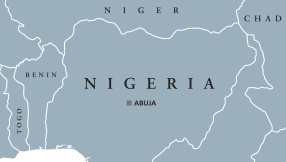Agencies Reach Out to Aid Tens of Thousands Cut Off in Afghanistan
After Afghanistan's worst winter weather in a decade led to the deaths of more than 500 people, tens of thousands have been cut off by heavy snowfall and are suffering from food shortages and outbreaks of disease, according to an agency of the churches in the UK and Ireland. Meanwhile, avalanches, snowstorms and blocked roads are hampering the delivery of relief.
While Afghanistan has experienced floods before, this year the risks are much higher because of the increase in snow and ice, Christian Aid reported Tuesday.
In central Afghanistan’s Ghor province, one of the hardest hit, delivery of emergency assistance for almost 15,000 people in Tulak and Saghar districts has proved particularly difficult. Surrounded by mountains, it is already one of the poorest and most isolated provinces in Afghanistan.
"Having experienced years of drought, these communities are not well prepared for a heavy winter," says Dr Waqfi of Coordination of Humanitarian Assistance (CHA) — a local Afghan charity organisation. "With the roads closed, they can’t get to the markets, and this has caused shortages of food, animal feed, and heating fuel."
"We have had some news from the Farsi district that people are burning the beams from the roofs of their houses for heating," Waqfi added.
Christian Aid, which supports local organisations offers aid through 16 overseas offices, has been working with CHA in Ghor to improve roads, sanitation, and access to food, employment and health facilities as well as to develop village organisations.
According to the agency, the two groups have mobilised village communities into road-clearing teams. They report that work on the road connecting Tulak to Shahrak, the capital of Ghor, is almost complete.
Meanwhile, health clinics run by CHA in Kamenj, Saghar and Tulak since 2002 are also in place, Christian Aid reported.
The agency says high levels of poverty in Afghanistan have already been the result of more than twenty years of conflict and a crippling four-year drought, which started in 1999.
Inadequate housing, poor nutrition and limited access to health facilities make Afghans extremely vulnerable to severe weather conditions. And successive disasters have left poor communities with very few resources.
Caitlin Porter, Christian Aid’s Advocacy Officer for Afghanistan said the devastation caused by the recent extreme weather illustrates that Afghanistan is still an incredibly poor and vulnerable country.
"Not only do Afghans face insecurity and lawlessness but also have to try and survive in increasingly hostile weather," Porter said. "Of course, there are fears that the current death toll will rise still further. Afghanistan’s human development ranking stands at 173 out of 178 countries worldwide. It is no surprise that the people of Ghor are struggling to cope."
While the UN’s World Food Program already provides food aid to about 6 million Afghans, access to food is always precarious in Afghanistan, which lives under the constant threat of poor harvests and food shortages.
Kenneth Chan
Ecumenical Press













